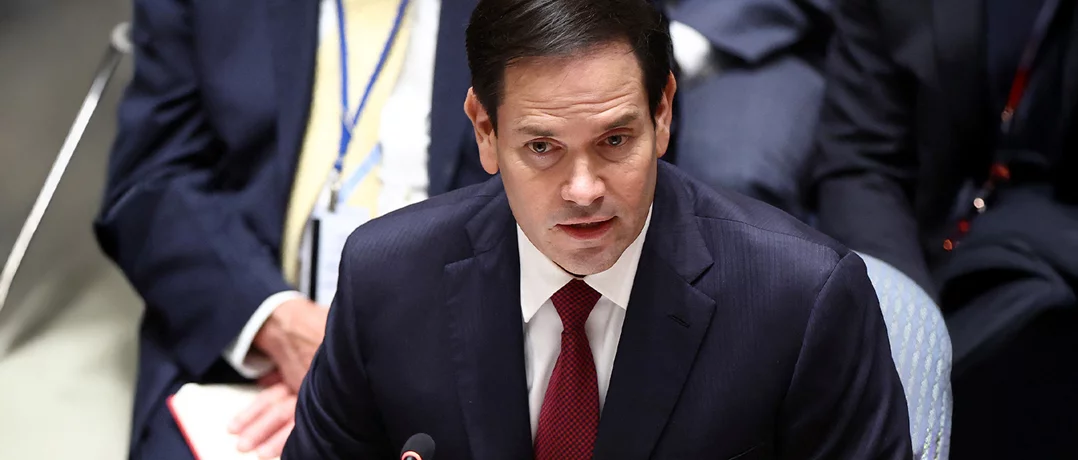Israel’s Knesset passed a bill to annex West Bank territory despite global opposition and regional condemnation.
Israel advances bill to annex occupied West Bank amid Rubio’s visit
Israel advances bill to annex occupied West Bank amid Rubio’s visit


Israel’s ambitions in the West Bank seems to persist despite regional and international efforts to curb its expansionist policies. The 2025 New York Declaration, ICJ rulings and various prominent countries’ vocal support for the two-states solution based on the 1967 borders (meaning the establishment of an independent Palestinian state in the West Bank and Gaza) have gone unheard in Tel Aviv’s parliament.
Israel’s controversial annexation bill
The Knesset just passed a bill (which was put forward by the leader of the far-right Noam party, Avi Maoz) to annex the West Bank, which Israel refers to by its biblical name “Judea and Samaria,” despite opposition from Israeli Prime Minister Benjamin Netanyahu and his Likud party. With a 25-24 vote, backed by some of Netanyahu’s governing coalition (such as National Security Minister Itamar Ben-Gvir’s Jewish Power party and Finance Minister Bezalel Smotrich’s Religious Zionism faction), the bill has yet to become law as soon as it gains the required 3 additional approvals. Moreover, another similar bill aimed at annexing the Maale Adumim settlement was passed by 31-9.
Likud’s rejection was not directed towards the idea itself, but rather the bill’s timing and manner. The party has long been an advocate of annexation and its opposition to the 1993-1995 Oslo Accords between Israel and the PLO. In a statement, Likud criticized the opposition’s efforts “aimed at damaging our relations with the United States”.
True sovereignty will be achieved not through a showy law for the record, but through proper work on the ground.
Rubio’s condemnation amid his visit to Israel
The controversial bill coincided with US Secretary of State Marco Rubio’s visit to Tel Aviv. This is his third visit since mid-September as well as the third by a senior Washington official this week (following those of Special Envoy Steve Witkoff and Vice President JD Vance), to solidify the Gaza ceasefire and advance second phase talks.
Rubio criticized the Knesset’s move, claiming that it would threaten the Gaza Peace Deal that the Trump administration managed to achieve. The Secretary of State told reporters on the tarmac before boarding his flight to depart for Israel that:
They passed a vote in the Knesset, but the president has made clear that’s not something we’d be supportive of right now.
Rubio’s comments came in line with what Trump himself announced only a month ago. The US president vowed not to allow Israel to annex the occupied West Bank, claiming that “it’s not going to happen.”
Regional arab condemnation
The annexation bill drew severe condemnation from the Palestinian Authority, Hamas, Qatar, Saudi Arabia and Jordan. They all rejected expansionist projects and the attempt to strip away any Palestinian land, which runs counter International Law.
It is worth noting that the United Nation’s top court, the International Court of Justice (ICJ), issued a non-binding ruling in 2014, declaring that Israel’s 56-year long rule in “the Palestinian territory occupied since 1967” is “illegal,” and that it is obligated to bring its presence in that territory to an end “as rapidly as possible.”


